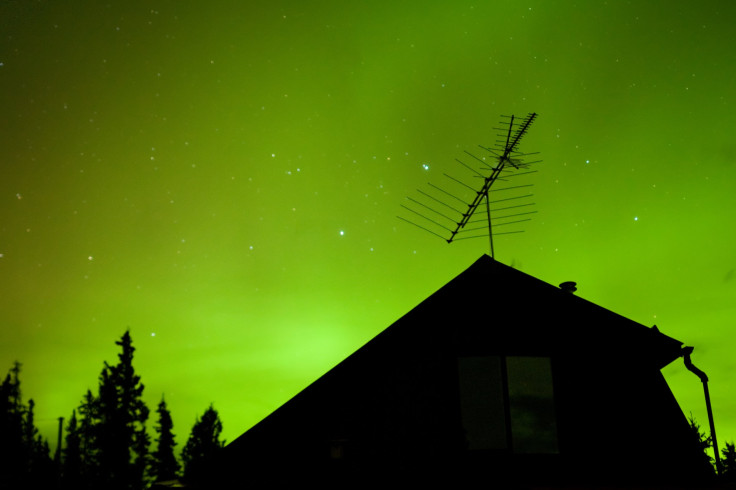Awe-Inspiring Sights Drive Belief In Supernatural: How Do We Explain The Unexplainable?

A sense of wonderment and awe of the world tends to evince a desire for the supernatural, throughout human history.
In medieval Europe, the parish church dominated the rural landscape dotted with the cruck houses of the peasant poor, small wooden thatched-roof dwellings of mud, straw, and manure. On a cold day, light filtering through a stained glass window might bring to life the divinity of nature — bowing man to forces more powerful. Likewise, America’s invasion of Iraq in the year 2003 was intended as an overwhelming onslaught of power — loud and bright — to “shock and awe” the dictatorial reign into submission.
New findings in psychology show these awe-inspiring moments, good and bad, may increase one’s tendency to submit to a higher power, and may underlie a human impulse toward God or the supernatural. In a study published Monday, an investigator from Claremont McKenna College sought to understand possible feelings triggering the desire to make sense of the external world.
"Many historical accounts of religious epiphanies and revelations seem to involve the experience of being awe-struck by the beauty, strength or size of a divine being, and these experiences change the way people understand and think about the world", investigator Piercarlo Valdesolo said in a statement. "We wanted to test the exact opposite prediction: It's not that the presence of the supernatural elicits awe, it's that awe elicits the perception of the presence of the supernatural."
Valdesolo, along with Jesse Graham, a colleague from the University of Southern California, tested the hypothesis by attempting to evince those feelings in study subjects. One group viewed majestical footage from BBC’s Planet Earth documentary series, while a second group watched neutral video from a news program. Afterward, the investigators queried their test subjects about the experience. How awesome was that volcano eruption? Do you believe in God?
Sure enough, those who’d viewed the awe-inspiring footage were more likely to espouse belief in God or the supernatural, an effect that held even after viewing outlandishly implausible scenes, such as a massive waterfall running through city streets. The logical sequence of the footage mattered less than the feelings evinced by the experience.
Similarly, another experiment showed a drop in tolerance of uncertainty after viewing awe-inspiring footage of natural wonder, such as the Grand Canyon. This psychological desire to make sense of the world, even of nature, may explain why feelings of awe led people to the supernatural. "The irony in this is that gazing upon things that we know to be formed by natural causes, such as the jaw-dropping expanse of the Grand Canyon, pushes us to explain them as the product of supernatural causes," Valdesolo said.
Yet, the obverse might also be true. A decreased tolerance of uncertainty and mystery vis-à-vis feelings of awe may compel people — such as psychologists — to seek explanations logical in nature. Whether genuflecting to the supernatural or following the scientific method, that hunger for order may drive the human spirit.
Source: Valdesolol, Piercarlo, Graham, Jesse. Awe, Uncertainty, And Ageny Detection. Psychological Science. 2013.
Published by Medicaldaily.com



























